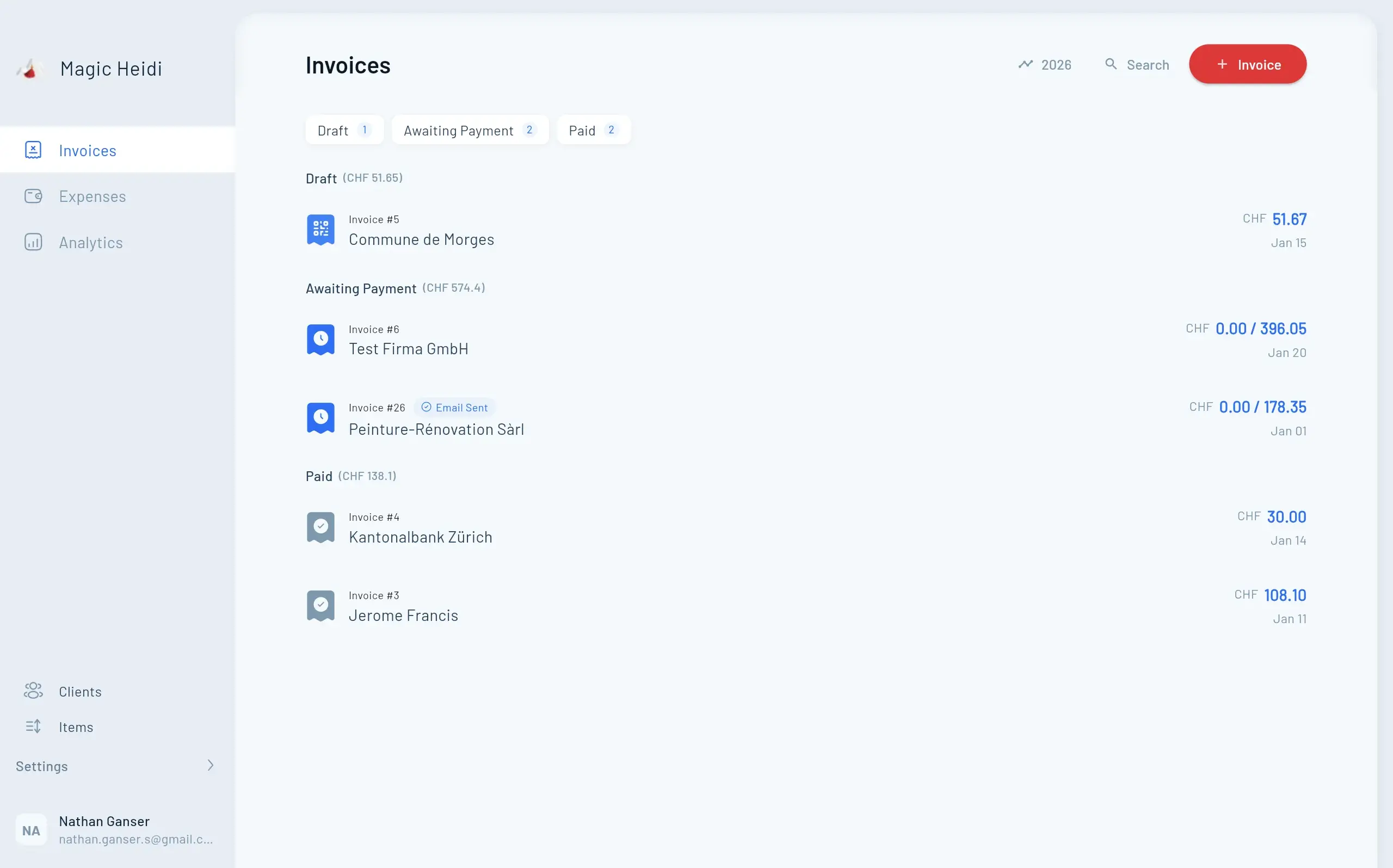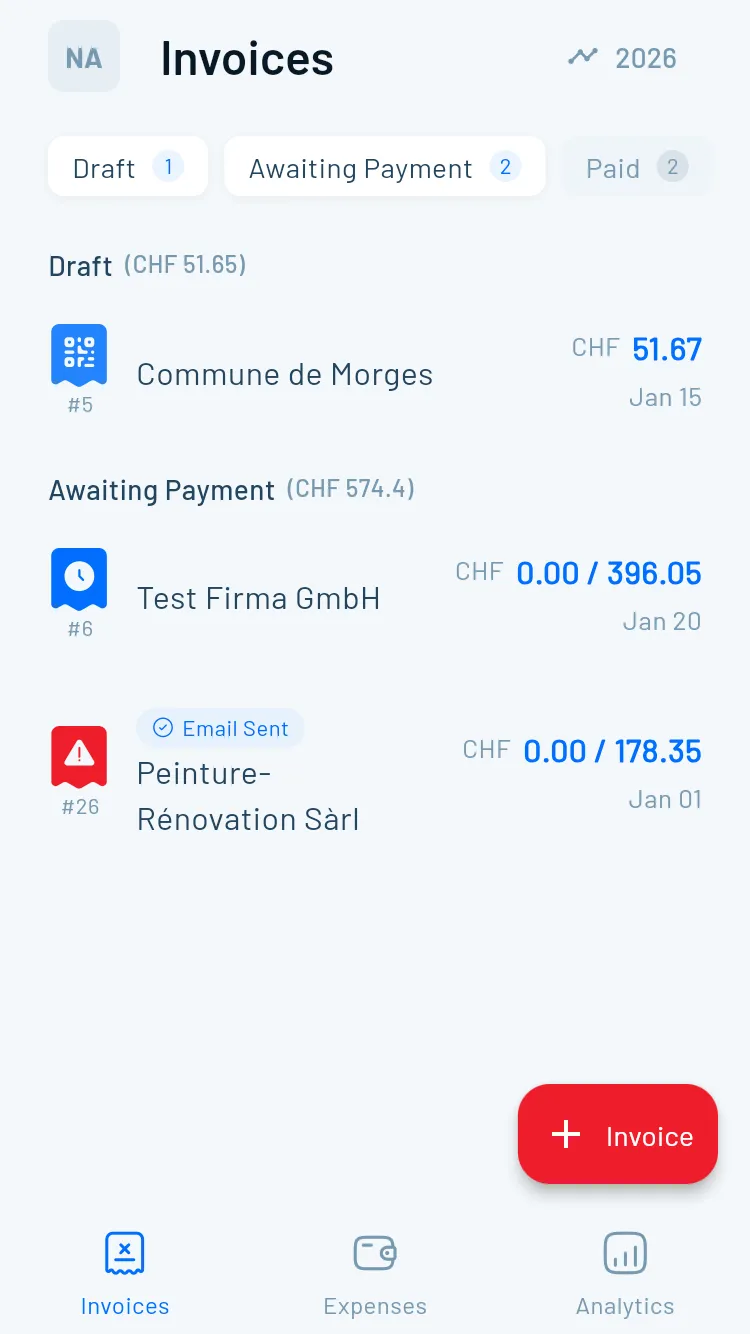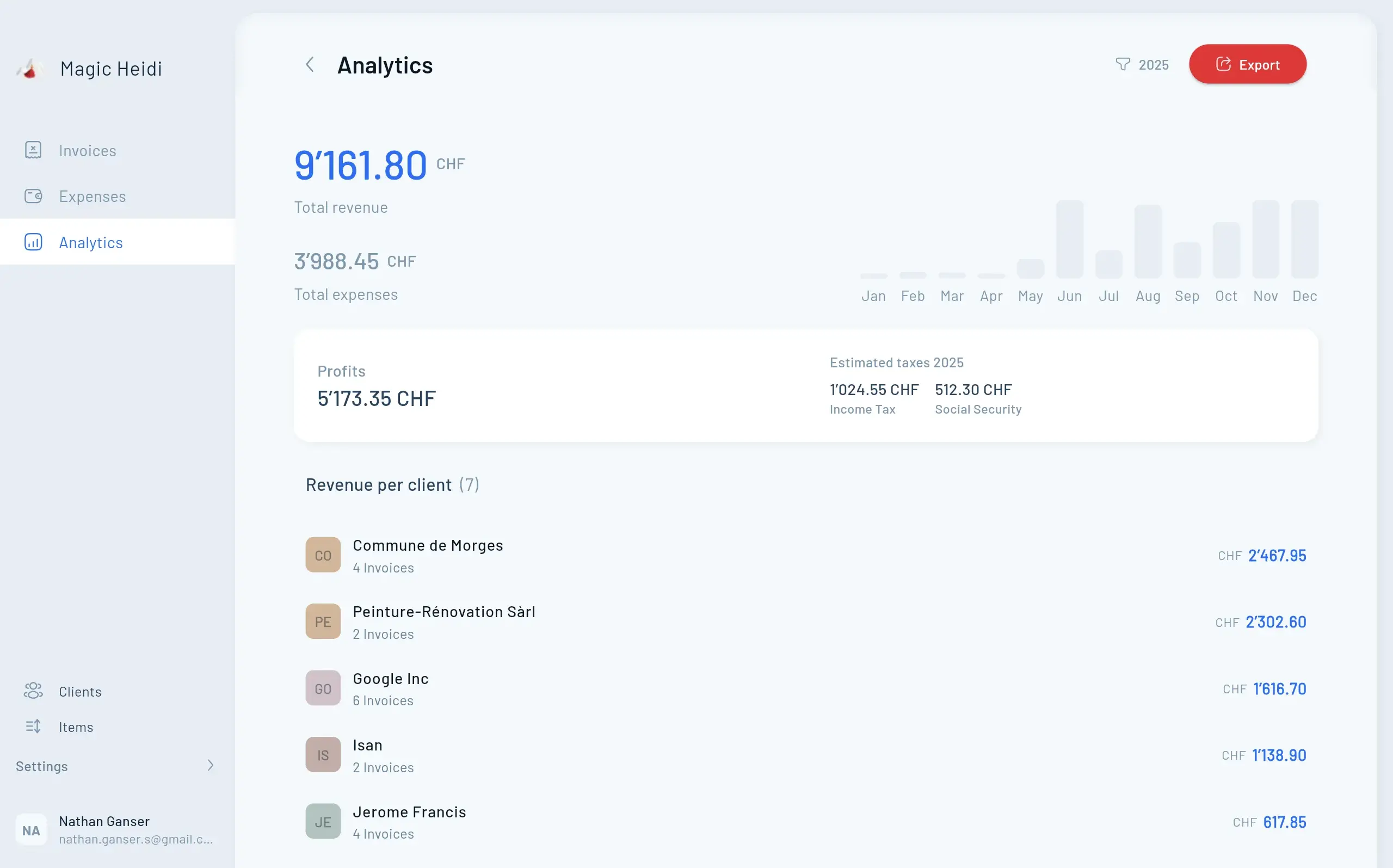Missing Mandatory Information
Leaving out invoice date, complete address, or UID number makes invoices legally incomplete.
- The fix: Use our template with fields for all mandatory elements
- Why it matters: Incomplete invoices can be rejected during VAT audits
- Prevention: Checklist before sending each invoice




